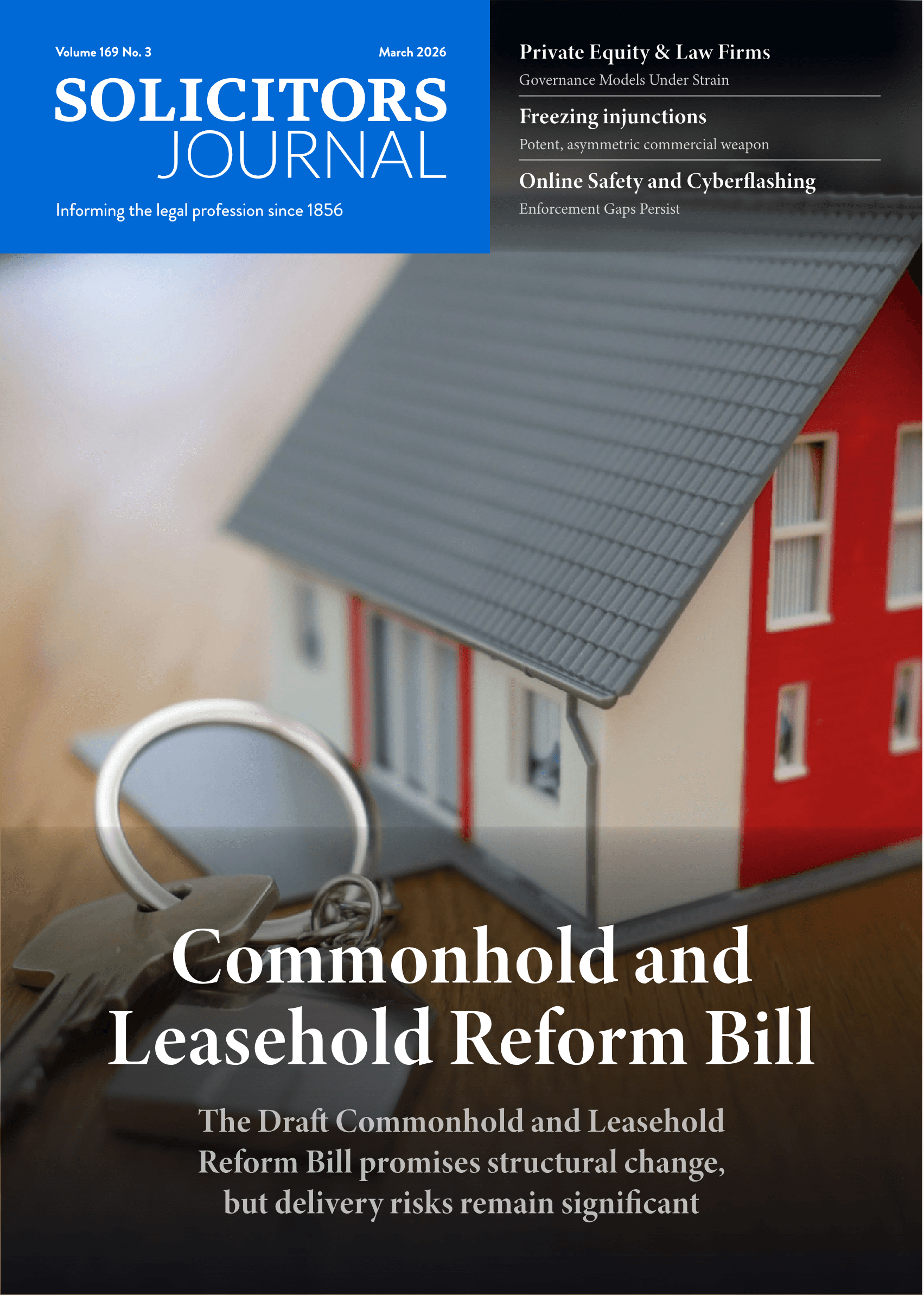The ‘cooling off’ period for a separating couple shortened – could this set a precedent?

By Iwona Durlak
Iwona Durlak shares her thoughts on a recent case concerning the 'cooling off' period
A law firm recently announced that they had shortened the mandatory ‘cooling off’ period for a client with life-limiting health issues. It’s believed to be the first time this has happened since no-fault divorce came into force in 2022. Are we likely to see more lawyers applying to the court for similar orders? What benefits could it have for clients with complex needs? And how easy is it to apply for a reduction?
Case background
The law firm Michelmores applied to reduce the cooling off period for a client with life-limiting health issues. Waiting for the full period could have ‘detrimentally affected’ this client, and the client required ‘financial autonomy’ to ensure they knew and that they could pay for their 24-hour care in future. It was a unique case, and in the end, the court approved, and the client was able to apply for a conditional order after ten weeks earlier this year.
What the law says
The cooling off period was introduced to allow separating couples a time to reflect, a possibility to reconsider, but vitally the opportunity to start agreeing their division of finances and assets, so by the time a conditional order is made, they hopefully have a consent order. After this, a couple have to wait another six weeks, before the divorce is finalised. The Divorce, Dissolution and Separation Act 2020 hasn’t made it easy for couples to skip this part, being very much integral to the no-fault divorce process: ‘[…] a party may not give confirmation […] before the end of the period of 20 weeks from the start of proceedings.’ And it is in exceptional cases that the court will grant a reduction in the cooling off period, ‘In a particular case the court dealing with the case may by order shorten the period that would otherwise be applicable […].’
In the run up to, and immediately after the law came into force, some across the legal profession raised concerns that the cooling off period was too long, despite a widespread welcoming of the new law. Under the Matrimonial Causes Act 1973, separating couples could be granted the decree absolute after 12-14 weeks (dependent on the financial settlement and child arrangements being agreed, as well as processing times).
How a reduced cooling off period could be beneficial
For the client and their circumstances outlined above, a reduction in this waiting time provided a vital benefit to their health and wellbeing. This decision will give confidence to legal professionals that access to a court order to minimise the cooling off period is doable. However, it will still be in very limited circumstances.
This decision could provide more options to clients, not only those who have life-limiting illnesses, but also in circumstances where there is domestic abuse/violence, and cross-border elements to the divorce. Of course, the cooling off period is advantageous to couples with assets across different jurisdictions, giving them more time to divide the assets and ensure they meet different jurisdiction’s laws about the ownership of such assets. These cross-border cases can be complex, however a possibility to shorten this period could be particularly beneficial to cross-border divorces where there is a risk of child abduction by one party, or where there are time limits/pressures to finalising assets in another jurisdiction, and a final order is required before moving forward. For lawyers, it could help persuade clients to pursue their divorce in England and Wales too, rather than another jurisdiction, if clients know this is a possibility. But, of course, only in exceptional circumstances.
Conclusion
This decision is a positive step forward, particularly for vulnerable clients who need more certainty around the financial aspects of their divorce. It is also important that the mandatory cooling off period still exists for the purposes of allowing reflection, time to process the financial settlement and child arrangement aspects of a separation. Hopefully, this development will give lawyers more confidence to apply for leeway where there are exceptional circumstances, giving these clients more freedom and autonomy over their divorce in what is already an extremely challenging time.
Iwona Durlak is a senior partner in the family team and co-founder of IMD Solicitors
https://imd.co.uk/
